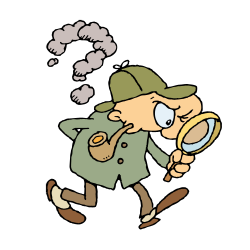Phrasal Verbs ’s topics

Group 1
69 words

Group 2
83 words

Group 3
74 words

Group 4
61 words
Phrasal Verbs
The PHaVE List is a listing of the most common meaning senses of the most common phrasal verbs in English, intended to be seen as a complement to previous phrasal verb frequency lists. It was designed to be used as a reference source for practitioners and as a learning guide for learners of English. The list is divided into 4 groups in which all of the phrasal verbs are introduced in word frequency order. The list was created by Melodie Garnier from University of Nottingham, UK.
287 words / 4 topics
Group 1
Group 2
Group 3
Group 4
Add multiple words

point out
phrasal verb
/pɔɪnt aʊt/
Video
Add
Definition
to mention something in order to give somebody information about it or make them notice it
Here we'll point out the obvious.
Translated by Google

set up
phrasal verb
/sɛt ʌp/
Video
Add
Definition
to establish, to arrange
An advisory committee is being set up.
Translated by Google

show up
phrasal verb
/ʃoʊ ʌp/
Video
Add
Definition
to arrive for a gathering or event
She didn’t show up at the meeting.
Translated by Google

sit down
phrasal verb
/'sɪt daʊn/
Video
Add
Definition
to move from a standing position to a sitting position
Please sit down and have a drink.
Translated by Google

stand up
phrasal verb
/stænd ʌp/
Video
Add
Definition
to put your body into an upright position from a sitting or lying position
He pushed away from the table and stood up.
Translated by Google

take off
phrasal verb
/teɪk ɔf/
Video
Add
Definition
(of an aircraft) to leave the ground and fly
When should we expect to take off?
Translated by Google

take out
phrasal verb
/teɪk aʊt/
Video
Add
Definition
to remove/withdraw something from somewhere
We'll take out pizza, since I am too tired to cook
Translated by Google

turn around
phrasal verb
/tɜrn əˈrɑʊnd/
Video
Add
Definition
to turn to face in the opposite direction, make either a half-circle or a full circle
My conscience told me to turn around before I made a mistake
Translated by Google

turn out
phrasal verb
/tɜrn ɑʊt/
Video
Add
Definition
to develop in a particular way, or to have a particular result
How will the game turn out?
Translated by Google

wake up
phrasal verb
/ˈweɪk ʌp/
Video
Add
Definition
Become (or make somebody become) conscious again after being asleep
I wake up at 6AM every day
Translated by Google

work out
phrasal verb
/wərk aʊt/
Video
Add
Definition
to find a solution
I’m trying to work out what it stands for.
Translated by Google

come up with
phrasal verb
/ kʌm ʌp wɪθ /
Video
Add
Definition
to think of something such as an idea or a plan
He will come up with a great idea for the ad campaign.
Translated by Google

get out
phrasal verb
/ɡɛt aʊt/
Video
Add
Definition
to escape; to exit, to avoid doing something
We need to get out of the house before the storm hits.
Translated by Google

make up for
phrasal verb
/meɪk ʌp fɔr/
Video
Add
Definition
to use as a replacement for something missing, lost, or lacking
Some solution has to be found to make up for such losses.
Translated by Google

stand up
phrasal verb
/stænd ʌp fɔr/
Video
Add
Definition
to state or show publicly that you support/ defend someone or something
Somebody’s got to stand up and say what’s wrong with this country.
Translated by Google

find out
phrasal verb
/faɪnd aʊt/
Video
Add
Definition
to discover a fact or piece of information
Helen's friend told her a lie but Helen found out the truth.
Translated by Google

take off
phrasal verb
/teɪk ɔf ˈsʌmθɪŋ /
Video
Add
Definition
Remove something (esp. piece of clothing or jewellery from one’s body)
I will take off my shirt and went to bed.
Translated by Google

come back
phrasal verb
/kʌm bæk/
Video
Add
Definition
to return to a place, to start to happen or exist again
She will come back to the kitchen with a bottle of fancy wine.
Translated by Google

come in
phrasal verb
/kʌm ɪn/
Video
Add
Definition
to enter a room, building, or other place
She opens the door to let me come in
Translated by Google

come up
phrasal verb
/kʌm ʌp/
Video
Add
Definition
(Be coming up) Be happening soon
If any questions come up during the meeting, feel free to ask.
Translated by Google

figure out
phrasal verb
/ˈfɪɡjər aʊt/
Video
Add
Definition
to finally understand something or someone
Despite her efforts, she couldn’t figure out what had happened.
Translated by Google

get back
phrasal verb
/ɡɛt bæk/
Video
Add
Definition
to arrive at the place where one started, return
What time will we get back?
Translated by Google

get up
phrasal verb
/ɡɛt ʌp/
Video
Add
Definition
to get out of bed
I always get up at 7 A.M.
Translated by Google

give up
phrasal verb
/ɡɪv ʌp/
Video
Add
Definition
to stop doing or to stop trying to do something
The problem was difficult, but Tom would not give up.
Translated by Google

go back
phrasal verb
/ɡoʊ bæk/
Video
Add
Definition
Return to a place, time, situation, activity, conversation topic
He will go back to his room.
Translated by Google

go down
phrasal verb
/ɡoʊ daʊn/
Video
Add
Definition
Decrease in value or amount
I don’t think prices will go down.
Translated by Google

go on
phrasal verb
/ɡoʊ ɔn/
Video
Add
Definition
Happen, take place
The debate will go on soon between the two parties.
Translated by Google

go up
phrasal verb
/ɡoʊ ʌp/
Video
Add
Definition
to increase (prices), become higher
Oil prices are expected to go up next month
Translated by Google

grow up
phrasal verb
/ɡroʊ ʌp/
Video
Add
Definition
to change from being a baby or young child to being an older child or adult
Taking responsibility for yourself is part of the process to grow up.
Translated by Google

look back
phrasal verb
/lʊk bæk/
Video
Add
Definition
to think about a time or event in the past
We had a very happy life to look back on those days.
Translated by Google

take on
phrasal verb
/teɪk ɔn/
Video
Add
Definition
to begin to deal with a job or responsibility
I can now take on new responsibilities at work.
Translated by Google

go out
phrasal verb
/goʊ aʊt/
Video
Add
Definition
Leave a room, building, car, or one’s home to go to a social event
"My friends and I decided to go out and buy lunch."
Translated by Google

come out
phrasal verb
/kəm aʊt/
Video
Add
Definition
Leave a place (room, building, container) or appear from it
She will go into the bank and come out with some money.
Translated by Google

pick up
phrasal verb
/pɪk əp/
Video
Add
Definition
Get or take SB/STH from a place
Can you pick up some food on the way home from work please?
Translated by Google

carry out
phrasal verb
/ˈkæri aʊt/
Video
Add
Definition
to perform; to do
The soldiers are going to carry out their mission tonight.
Translated by Google

take over
phrasal verb
/ ˈteɪk ˈoʊvɝ/
Video
Add
Definition
Gain control, management, or possession of something/ someone (task, job, political party, organisation)
After 11 hours of driving, I was getting tired. Fortunately, my friend offered to take over.
Translated by Google

go ahead
idiom
/ ˈgoʊ əˈhɛd/
Video
Add
Definition
to continue; to proceed without hesitation
We have more than enough food for dinner. Go ahead and invite your friend to join us.
Translated by Google

make up one's mind
idiom
/ ˈmeɪk ˈʌp ˈmaɪnd/
Video
Add
Definition
to reach a decision; to decide
I couldn't make up my mind whether to attend Harvard or Stanford.
Translated by Google

end up
phrasal verb
/ end ʌp/
Video
Add
Definition
to finally be in a particular place or situation
If you don't study, you will end up in a poorly paid job
Translated by Google

make up
phrasal verb
/ meɪk ʌp/
Video
Add
Definition
(of parts) compose or constitute a whole
Women make up 40 percent of the workforce.
Translated by Google

go on
phrasal verb
/ ɡoʊ ɔn/
Video
Add
Definition
to continue doing something or being in a situation
I'm all right here. Go on with your work.
Translated by Google

come out
phrasal verb
/ kʌm ɑʊt/
Video
Add
Definition
If something comes out, it becomes known publicly after it has been kept secret
The news will come out that he will leave the team.
Translated by Google

hold up
phrasal verb
/ hoʊld ʌp/
Video
Add
Definition
to delay someone or something
Such accidents often hold up traffic for hours
Translated by Google

come out
phrasal verb
/ kʌm ɑʊt/
Video
Add
Definition
Become available or released to the public (film, record, book)
Their new album is expected to come out next month.
Translated by Google

come out
phrasal verb
/ kʌm ɑʊt/
Video
Add
Definition
to state a decision or opinion officially or publicly
The commission has come out against the takeover.
Translated by Google

go out
phrasal verb
/ ɡoʊ ɑʊt/
Video
Add
Definition
(Go out and do STH) Used as an intensifier, to highlight the active nature of what is being done
Do you think he’ll go out and buy the whole company?
Translated by Google

set up
phrasal verb
/ set ʌp/
Video
Add
Definition
Place something in a particular spot or position
We need to set up a few more chairs so everyone can sit down.
Translated by Google

come in
phrasal verb
/ kʌm ɪn/
Video
Add
Definition
Become involved in a situation
We need experts to come in and give us advice.
Translated by Google

take on
phrasal verb
/teɪk ɔn/
Video
Add
Definition
Acquire or assume as one’s own (quality, meaning, colour, shape)
The story will take on a whole new meaning when you read it again.
Translated by Google

look up
phrasal verb
/ lʊk ʌp/
Video
Add
Definition
Raise one’s eyes
He was told to look up from his book and answer the question.
Translated by Google

take out
phrasal verb
/ teɪk ɑʊt/
Video
Add
Definition
Invite to a recreational place or social event
You should take her out to this new Chinese restaurant.
Translated by Google

take out
phrasal verb
/ teɪk ɑʊt/
Video
Add
Definition
Obtain an official document or service from an authority
I had to take out a loan to cover all my expenses.
Translated by Google

come on
phrasal verb
/kʌm ɔn/
Video
Add
Definition
Said to encourage someone to try harder, or do or say something
Come on, don’t be shy and tell us your story.
Translated by Google

come on
phrasal verb
/kʌm ɔn/
Video
Add
Definition
Said to show someone disbelief, disagreement, or anger
Oh come on, you're just lying to me!
Translated by Google

go down
phrasal verb
/ ɡoʊ dɑʊn/
Video
Add
Definition
Move down to a lower level or position
After hitting the iceberg, the ship began to go down.
Translated by Google

go down
phrasal verb
/ ɡoʊ dɑʊn/
Video
Add
Definition
Go from one place to another, esp. one that is further south or underneath
We will go down to Australia next year.
Translated by Google

take off
phrasal verb
/ teɪk ɔf/
Video
Add
Definition
Leave a place, especially suddenly
I decided to jump into the car and take off.
Translated by Google

work out
phrasal verb
/ wɜrk ɑʊt/
Video
Add
Definition
Exercise in order to improve health or strength
I work out at the gym five times a week.
Translated by Google

work out
phrasal verb
/ wɜrk ɑʊt/
Video
Add
Definition
(+ well/badly) Happen or develop in a particular way
I hope everything will work out well in the end.
Translated by Google

work out
phrasal verb
/ wɜrk ɑʊt/
Video
Add
Definition
Prove to be successful
Despite our efforts, it just didn’t work out.
Translated by Google

come down
phrasal verb
/ kʌm dɑʊn/
Video
Add
Definition
Move from a higher spatial location to a lower one; fall/land onto the ground
Come down from the roof or you will hurt yourself.
Translated by Google

come down
phrasal verb
/ kʌm dɑʊn/
Video
Add
Definition
(+ to) Reduce itself to one particular thing that is the most important or essential matter
Eventually our choice of hotel will come down to how much we can afford.
Translated by Google

come down
phrasal verb
/ kʌm dɑʊn/
Video
Add
Definition
Become lower in amount or value
We are expecting interest rates to come down.
Translated by Google

go up
verb
/ ɡoʊ ʌp/
Video
Add
Definition
Move upward, or from a lower spatial location to a higher one
He could see a few hands go up in the audience.
Translated by Google

look back
phrasal verb
/ lʊk bæk/
Video
Add
Definition
Look at something or someone again after having momentarily looked elsewhere
I will close the dictionary and look back to my notes later.
Translated by Google

hold up
phrasal verb
/ hoʊld ʌp/
Video
Add
Definition
Hold something in a high position (e.g. above one’s waist or head), so it can be seen or reached
The professor decided to hold up the picture so everyone could see it.
Translated by Google

hold up
phrasal verb
/ hoʊld ʌp/
Video
Add
Definition
Remain strong or in a fairly good condition after a bad period or the wear of time (person, business, device)
There were fears that her ankle might not hold up for the competition.
Translated by Google

pull out
phrasal verb
/ pʊl ɑʊt/
Video
Add
Definition
Take something or someone out of a container, thing or place
He was asked to pull out his gun
Translated by Google

turn around
phrasal verb
/ tɜrn əˈrɑʊnd/
Video
Add
Definition
Make something become better or more successful than it previously was (economy, business)
People have stopped believing the President could turn around the economy.
Translated by Google